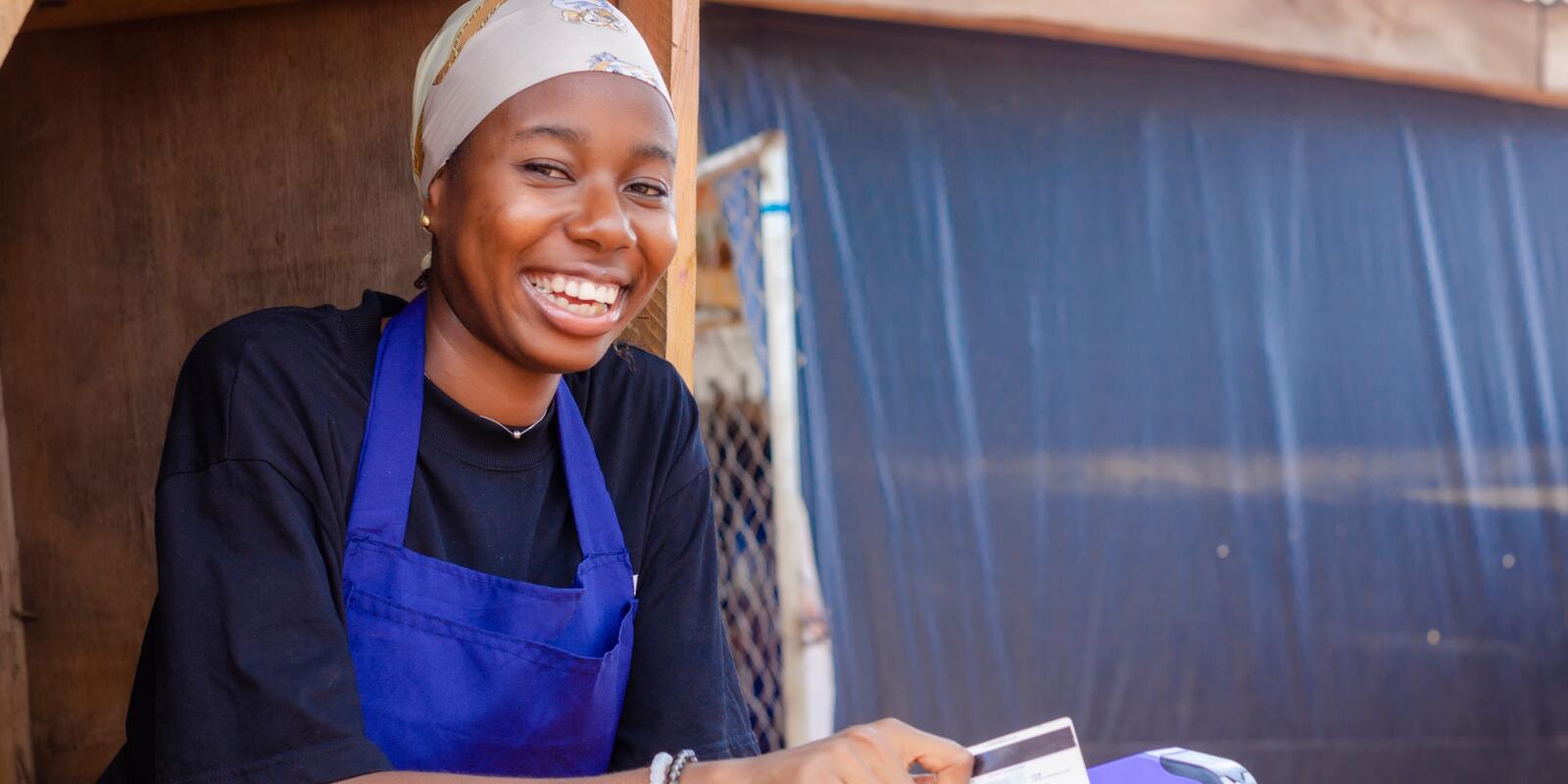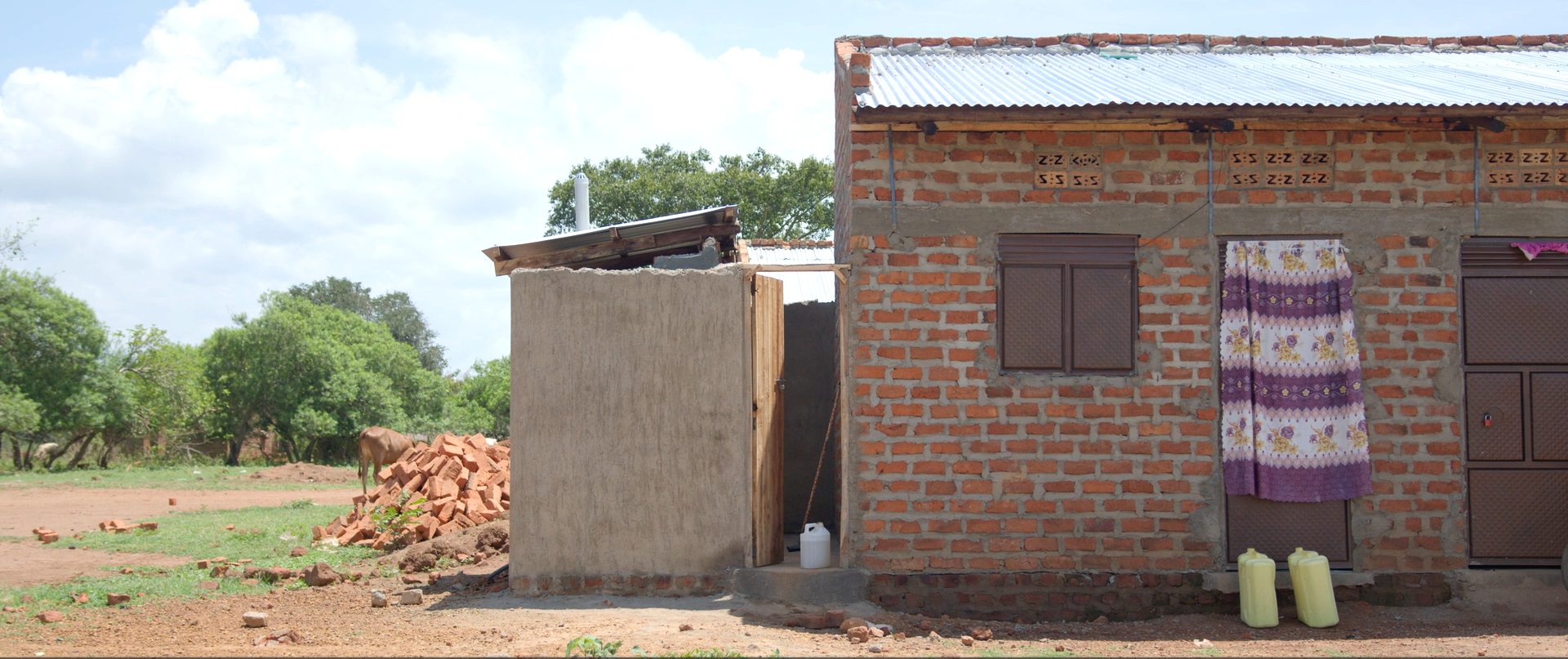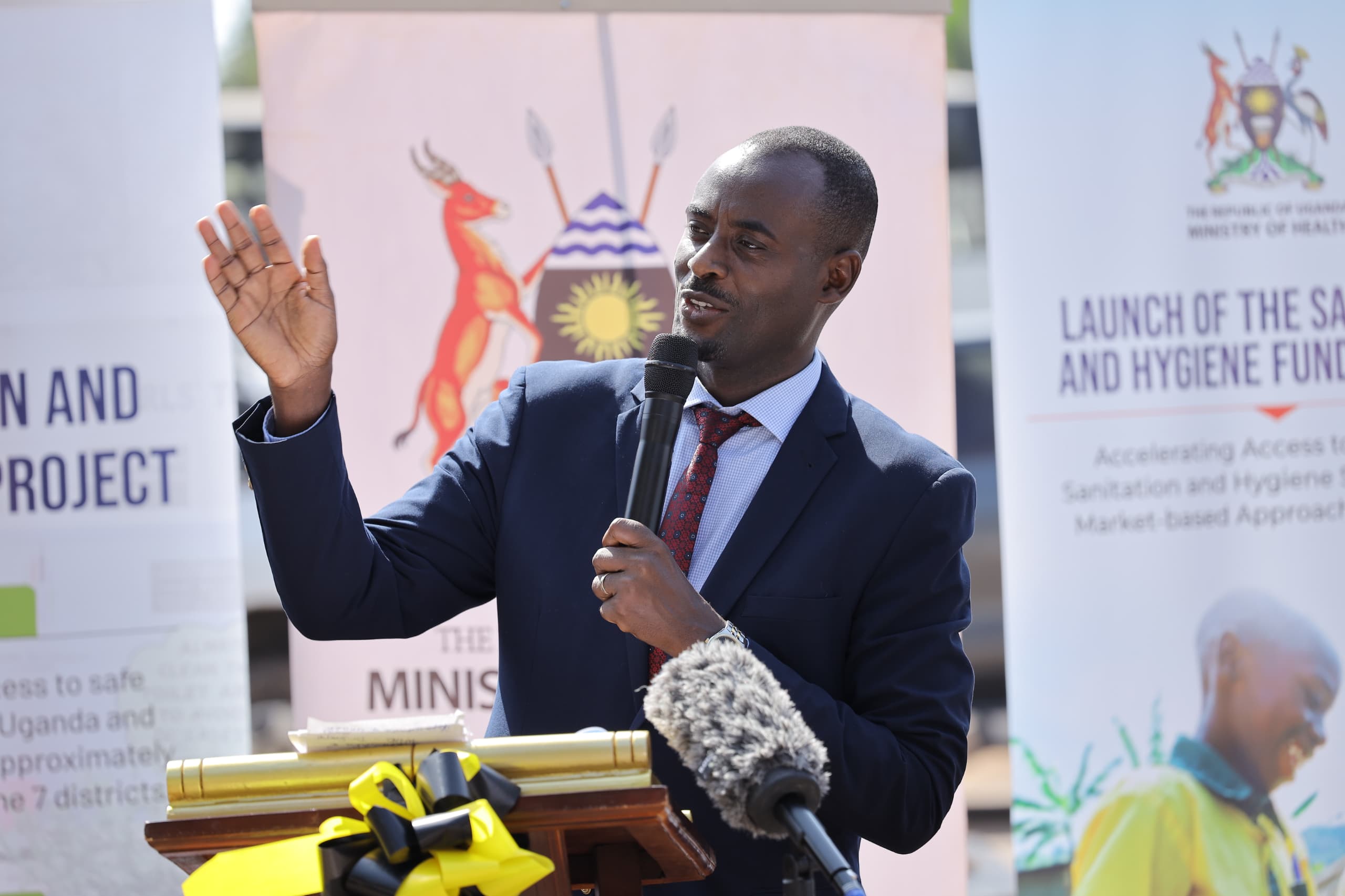In Uganda, more than 60% of households in Uganda have limited or no access to sanitation (source: UNICEF/WHO) and around 36% of menstruating women and girls rely on non-purpose-made materials such as cloth, cotton wool, or toilet paper to manage their period (source: RHSC).
With 60% of its preventable disease burden estimated to be linked to poor sanitation and hygiene, the Government of Uganda has identified investment in sanitation as a priority underpinning its public and environmental health ambitions. With SHF, the Government is working to unlock public and private financing into Uganda’s sanitation economy valued at a potential USD 2.7 billion by 2030 once universal access is achieved.
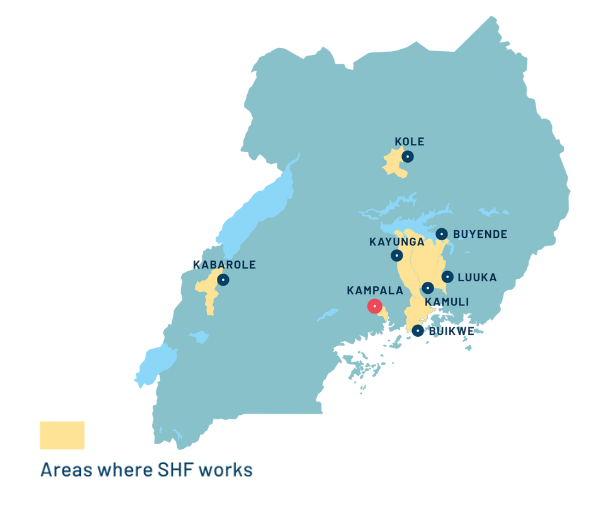

Driving Next Generation Sanitation markets and access in Uganda
SHF has been working in Uganda to support technical assistance and lay the foundations for Next Generation Sanitation and the menstrual health market. To strengthen investment readiness in Uganda, SHF has supported the development of a Sanitation and Hygiene Investment Case; a Sanitation and Hygiene Financing Strategy; and a briefing on Public Sector Reform Opportunities for Sanitation.
Together with Water for People, SHF has also facilitated the establishment of an interministerial coordination mechanism and steering committee to leverage resources across key ministries. These efforts contributed to unlocking USD 1.5 million for Environmental Sanitation in Uganda’s Ministry of Health and played a key role in embedding sanitation within the country’s Climate-Resilient Health National Action Plan (H-NAP), a first in Africa.
...Read moreDriving Next Generation Sanitation markets and access in Uganda
SHF has been working in Uganda to support technical assistance and lay the foundations for Next Generation Sanitation and the menstrual health market. To strengthen investment readiness in Uganda, SHF has supported the development of a Sanitation and Hygiene Investment Case; a Sanitation and Hygiene Financing Strategy; and a briefing on Public Sector Reform Opportunities for Sanitation.
Together with Water for People, SHF has also facilitated the establishment of an interministerial coordination mechanism and steering committee to leverage resources across key ministries. These efforts contributed to unlocking USD 1.5 million for Environmental Sanitation in Uganda’s Ministry of Health and played a key role in embedding sanitation within the country’s Climate-Resilient Health National Action Plan (H-NAP), a first in Africa.
The SHF project Accelerating Access to Improved Sanitation and Hygiene Services using Market-Based Approaches has further contributed to strengthening the sanitation value chain in country by building capacity and empowering key actors including local government health and water staff, sanitation promoters (Village Health Teams), local masons, hardware shop owners and lending associations. Since late 2024, SHF has also included the Kampala Capital City Authority (KCCA) in this project, facilitating the development of Service Level Agreements for Sanitation Private Sector actors in Kampala.
Under the partnership with KCCA, SHF aims to help strengthen standard service provision, professionalization, as well as job creation among the youth services such as pit emptying, transport and faecal sludge treatment while improving household access.
In 2025, SHF is implementing the Sanitation Economy SME Support Program to further strengthen the private sector’s contribution to publicly driven sanitation value chains, build SME capacity, and address SME funding gaps in Uganda. We will also replicate the local finance program approach currently being designed for a pilot in Nigeria to leverage local currency financing for sanitation.
Key SHF Partners- Ministry of Health, Uganda
- Water for People - Uganda - Uganda National Bureau of Standards |
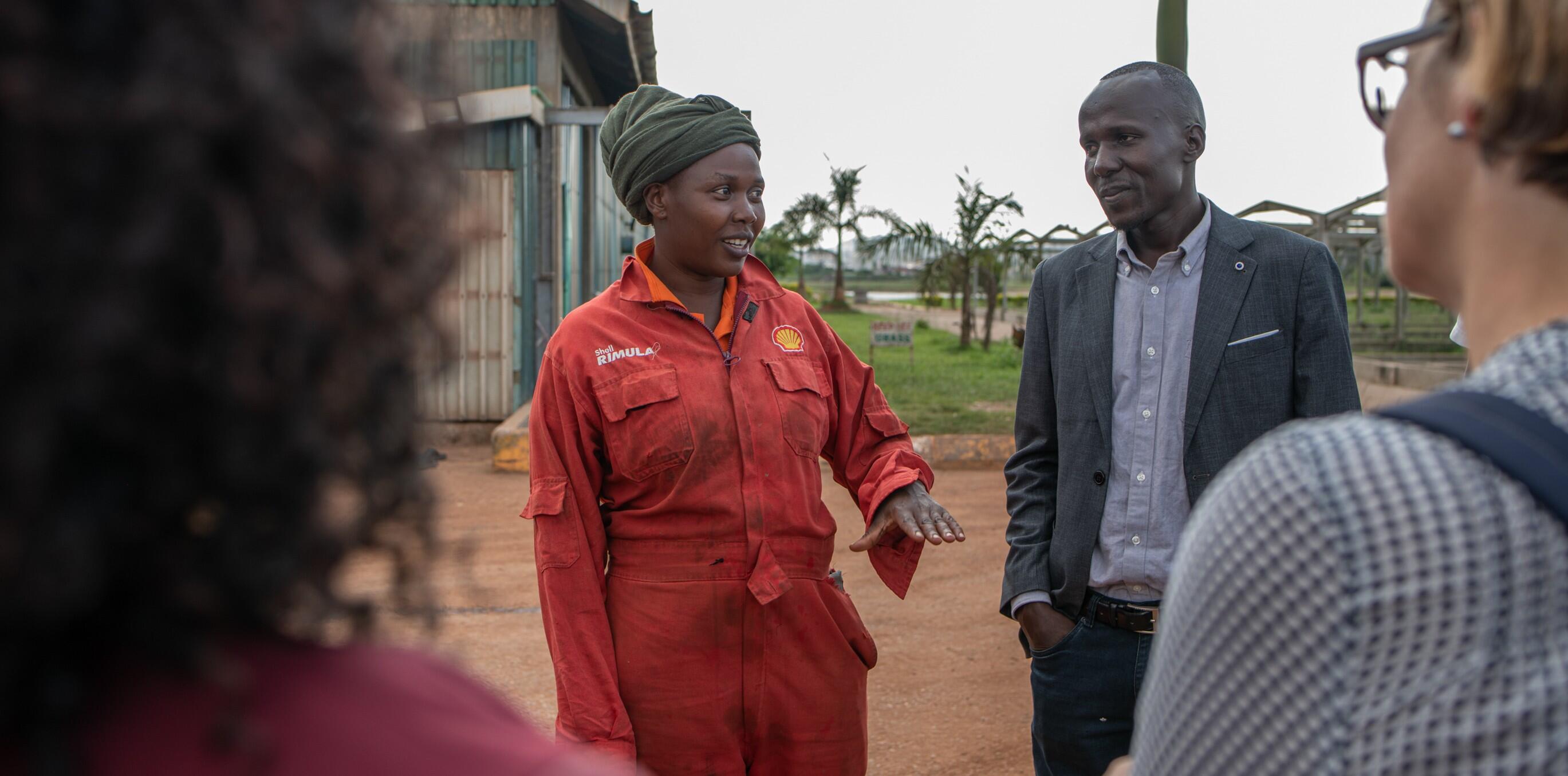
Capital M Uganda: Toward a thriving national menstrual health market
The menstrual health market in Uganda is growing steadily, increasing from USD 122 million in 2019 to USD 130 million in 2021 (source: RHSC).
To strengthen investment readiness in Uganda, SHF has supported the Government of Uganda in the development of a Menstrual Health and Hygiene Investment Case; a Menstrual Health and Hygiene Financing Strategy; and Public Reform Opportunities for Menstrual Health and Hygiene. We are now working on applying the insights collected in conjunction with the roll-out of our pioneering new Menstrual Health Market Maturity Framework or MHMat to identify key areas of support and interventions.
...Read moreCapital M Uganda: Toward a thriving national menstrual health market
The menstrual health market in Uganda is growing steadily, increasing from USD 122 million in 2019 to USD 130 million in 2021 (source: RHSC).
To strengthen investment readiness in Uganda, SHF has supported the Government of Uganda in the development of a Menstrual Health and Hygiene Investment Case; a Menstrual Health and Hygiene Financing Strategy; and Public Reform Opportunities for Menstrual Health and Hygiene. We are now working on applying the insights collected in conjunction with the roll-out of our pioneering new Menstrual Health Market Maturity Framework or MHMat to identify key areas of support and interventions.
SHF is also supporting Uganda’s participation in the development of global quality standards for menstrual products led by the Swedish Institute for Standards (SIS), which is an SHF partner, to ensure alignment with the new global industry benchmark, contribute Uganda’s expertise to the global development process and increase quality for users.
We are also working with UNFPA on the development of a national stakeholder engagement platform on standards and regulatory improvements between government, regulatory institutions, NGOs and the private sector.
Uganda is a priority country under SHF’s East Africa wide program funded by the Gates Foundation called Menstrual Health Markets Support Program for Small and Medium Enterprises (SMEs). Through this program, SHF aims to expand the number of companies offering novel menstrual products in LMICs by offering technical support and grant funding. With the pipeline of enterprises in Uganda, it is expected that several enterprises could qualify for the program.
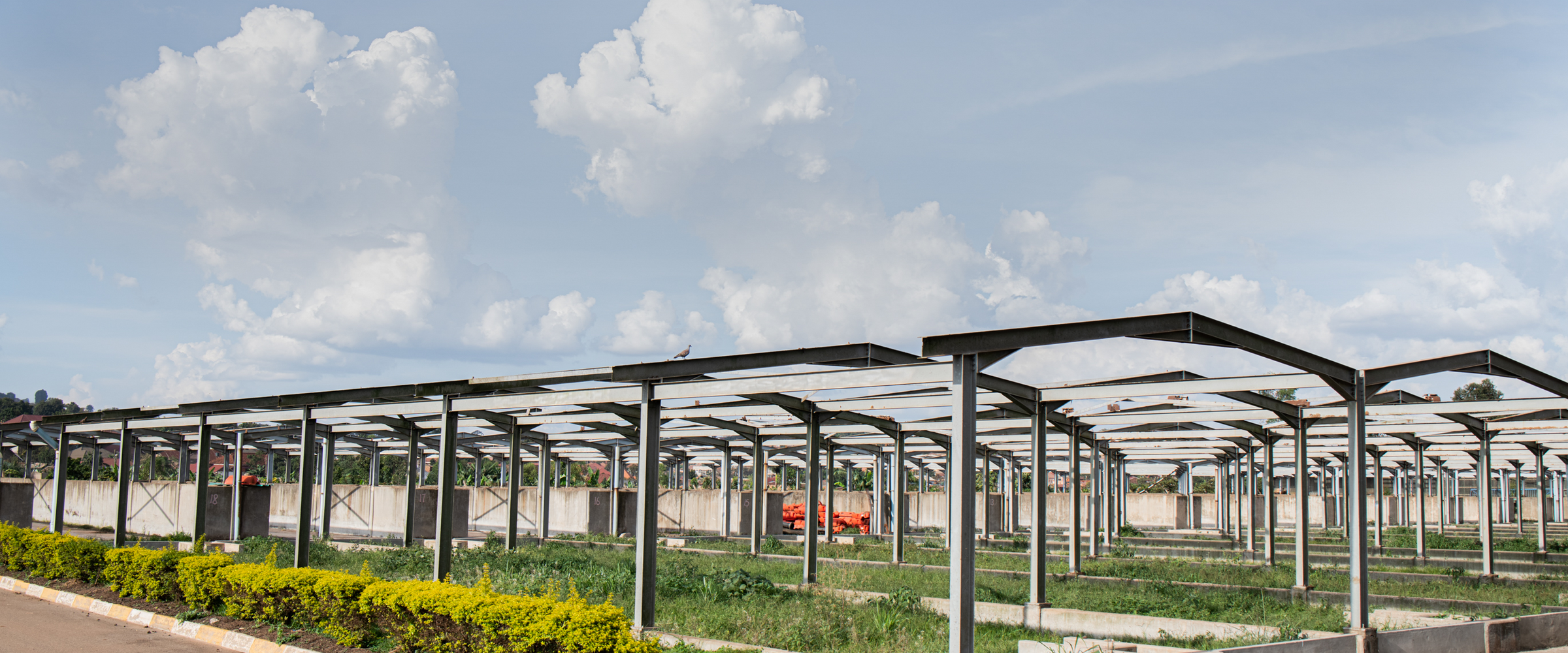
Latest News
Key Resources |
|

